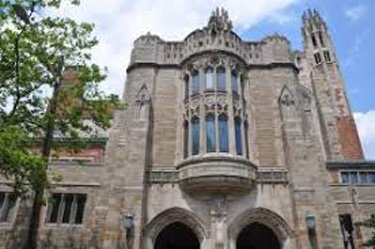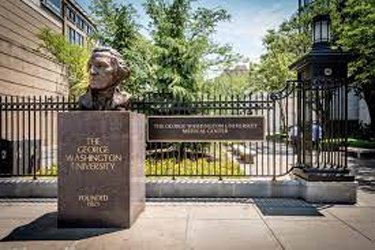Archive for May, 2022
16 May 2022


Barack Obama epitomizes perfectly the unjustified self-regard, complacency, and arrogance of our Cliff Notes Elite.
In the Wall Street Journal, Barton Swain points out the dangerous delusion endemic within the airhead Left that leads them to imagine that they are entitled to suppress opinions contrary to their own.
One of the great ironies of American political life in the 2020s is that the people most exercised about the spread of false information are frequently peddlers of it. Their lack of self-understanding arises from the belief that the primary factor separating their side from the other side isn’t ideology, principle or moral vision but information—raw data requiring no interpretation and no argument over its importance. It is a hopelessly simpleminded worldview—no one apprehends reality without the aid of interpretive lenses. And it is a dangerous one.
The roots of this self-deceiving outlook are complicated but worth a brief look.
The animating doctrine of early-20th-century Progressivism, with its faith in the perfectibility of man, held that social ills could be corrected by means of education. People do bad things, in this view, because they don’t know any better; they harm themselves and others because they have bad information. That view is almost totally false, as a moment’s reflection on the many monstrous acts perpetrated by highly educated and well-informed criminals and tyrants should indicate. But it is an attractive doctrine for a certain kind of credentialed and self-assured rationalist. It places power, including the power to define what counts as “good” information, in the hands of people like himself.
There was also, among a host of intellectuals in the middle of the last century, the expectation of a “postpartisan” future of technocratic centrism in which the large ideological questions are mostly settled. What is mainly needed from the political process, the thinking went, isn’t visionary leadership but skillful management. Arthur M. Schlesinger Jr.’s “The Vital Center” (1949) is an expression of that outlook, as are John Kenneth Galbraith’s “The Affluent Society” (1958) and Daniel Bell’s “The End of Ideology” (1960). These writers wanted the cool control of experts, not the messy brawling of democracy, which they felt lent itself too easily to revolution. “The tendency to convert concrete issues into ideological problems, to invest them with moral color and high emotional charge,” Bell wrote, “is to invite conflicts which can only damage a society.”
The technocratic impulse is now an integral part of our politics. Those most given to it tend to view themselves not as adherents of any conception of political life but simply as people who acknowledge the world as it is. They regard differing outlooks as deviations from reality that can only cause trouble for no good reason. They believe their critics, who look at the same facts but draw different conclusions, aren’t simply mistaken but irrational, corrupt or both.
No politician deployed the rhetoric of technocratic postpartisanship more openly than Mr. Obama. In a 2007 speech to Google employees, early in his campaign for president, he expressed it concisely. “The American people at their core are a decent people,” he allowed. “There’s a generosity of spirit there, and there’s common sense there.” You could hear the “but” coming. “But,” he said, “it’s not tapped.”
He continued: “Mainly people—they’re just misinformed, or they are too busy, they’re trying to get their kids to school, they’re working, they just don’t have enough information, or they’re not professionals at sorting out all the information that’s out there, and so our political process gets skewed. But if you guys give them good information, their instincts are good and they will make good decisions. And the president has the bully pulpit to give them good information.”
The self-regard implicit in that observation is astounding. More important is its naiveté. The prevalence of bad information is nothing new. Lies, half-truths, wild exaggerations and farcical inventions are part of democratic politics and always have been. Mr. Obama’s remarks reveal a failure to understand that large, complex arguments always involve assumptions and philosophical commitments arising from background, experience and personality.
For him—and he shows no signs of change since he made those remarks 15 years ago—politics is a simple Manichaean struggle in which the righteous and well-intentioned use good data, and the malign and ignorant use bad. Mr. Obama’s most ardent admirers, accordingly—I think of the founders of the “explainer” site Vox.com—view themselves not as proponents of a particular ideological conviction but as disseminators of good data.
RTWT
15 May 2022


Ryan Ritchie penned a letter to billionaire Sir Paul complaining about his ticket prices.
Let’s, Paul, for the sake of argument, say I want my parents to, you know, actually see you, so I buy three seats in section C129. Those seats are $450. Each. And, as Ticketmaster reminds me, “+ fees.”
I can’t surprise my parents with tickets to see Sir Paul freakin’ McCartney only for them to sit halfway to LAX. That’s like giving a child a toy without batteries. A $600 toy, mind you.
That $600 doesn’t include parking. I’ve yet to visit SoFi Stadium, but let’s pretend parking is $20. We both know it’s not $20, but let’s pretend. That’s $620. My parents don’t drink alcohol, so I’m definitely saving money on beers, but — and I know you don’t live here — have you any idea of current gas prices? You probably don’t because if I wrote “The Long and Winding Road” I wouldn’t know gas prices, either. Paul, gas is expensive. Like, so expensive that I’m writing to you and wasting space by talking about gas.
Conservatively, if I bought the cheapest tickets, I would be looking at $700 to take my parents to your show and sit far enough away that we will not be able to see you. To be frank, Paul, that sucks. I don’t want to spend that kind of money to stare at the big screens that I am sure will be on stage. Certainly, you’ve heard of YouTube. My parents and I can get the same experience tomorrow morning for much less money.
Paul, serious question: What the fuck?
Can I take a guess before you answer? You probably have no idea how much tickets are to your show in Inglewood or any show on your “Got Back” tour. You also probably have no idea how many tickets are being sold by Ticketmaster as “Verified Resale Tickets,” which appears to make the prices increase and fluctuate. But what about the tickets that are not resales? Why are those so expensive? Surely someone in your camp knows how much tickets cost to your shows. And surely they can be cheaper.
The COVID-19 lockdown meant lots of people didn’t make money. I’m assuming your band members fall into this category. If so, I sympathize with them just like I sympathize with everyone whose income suffered due to the pandemic. What about them, Paul, your fans? What about people like me, people who want to see you, to take their parents out for a night to hear the music of their youth, the music of my youth, the music of all our youths?
Should that night cost $700?
Call me naïve, but I don’t think any three people should have to pay $700 to attend any concert that doesn’t include Elvis walking onto the stage and confirming he faked his 1977 death. That is worth $700.
Sure, you are Paul McCartney, but I grew up going to five-dollar punk shows where the musicians were two feet away from me and my friends. Those were the best bands I’ve ever seen and the best times of my life. You wrote the soundtrack to my life, to my parents’ lives, to so many people’s lives, but even you, Paul, can’t convince me that any concert is worth $190 a ticket to sit as far away as physically possible.
I’m a bass player and songwriter and I’ve been vegan for 18 years (vegetarian for seven before that), which means there’s pretty much nothing you could do to get me to stop loving you and your music. If this letter means anything to you, hopefully it’s this: The idea of seeing you in concert is worth every cent in my bank account and for the first time in my life, I can afford $700 and not worry about how I’m going to eat for the next three months. But I shouldn’t have to. I should be able to see you at a reasonable price, especially from a mile away.
Signed,
Ryan Ritchie
RTWT
HT: Ed Driscoll.
—————————-
Peter Lay (obviously more of a Stones man) contemplates, and rejects, critical hyperbole extolling the greatness of the Fab Four. They’re pretty darn good at their best. Sergeant Pepper was wildly over-rated. And they do not rank with Schubert.
In his review of The Beatles (aka “The White Album”) published in the Observer in October 1968, the filmmaker Tony Palmer hailed Lennon and McCartney as “the greatest songwriters since Schubert”. The White Album, he insisted, “should surely see the last vestiges of cultural snobbery and bourgeois prejudice swept away in a deluge of joyful music making”.
Palmer was not the first, nor will he be the last, commentator to abandon critical faculties in order to claim a place on the “right side of history”. The previous year Kenneth Tynan declared the release of Sergeant Pepper’s Lonely Hearts Club Band a “decisive moment in the history of western civilisation”.
There are those who still cling to that claim and, as the gushing response to Peter Jackson’s Get Back, an eight-hour film of salvaged material from the 1969 Let it Be sessions, suggests, the popularity of the Beatles and the affection in which they are held shows no sign of abating. But Palmer’s Schubert comparison is a telling one, not least because The White Album does contain one Schubertian masterpiece: Paul McCartney’s “Blackbird”.
A comment, it is claimed, on the US civil rights struggle, “Blackbird” was inspired by JS Bach’s “Bourée in E minor”, a piece for lute with which McCartney was acquainted. No other song distils his melodic genius down to its purest form and even the lyrics are a notch above the Beatles’s often banal musings.
The problem, apart from the fact that Schubert wrote scores of superior songs, is that The White Album — a double LP which is best edited down to a shortish two-sider — also contains what might be McCartney’s nadir: “Ob-La-Di, Ob-La-Da”, a song of “desperate levity” so hated by the other band members, that they vetoed its release as a single. Its irritatingly ingratiating melody took it to number one anyway, covered by Marmalade.
It’s the pattern with Beatles LPs — that frustrating mixture of the sublime and the ridiculous. Even Revolver — widely regarded as their masterpiece — contains a couple of duffers, courtesy of George Harrison. Similarly, his contribution to The White Album, along with the portentous “While My Guitar Gently Weeps”, is “Piggies”, a grimly twee attack on bourgeois conformity that undermines all the trippy sentiments of peace and love and karma that Harrison preached to his immature end. One is reminded of the Twitter trolls who remind us to “be kind” while spewing misanthropy left, right and centre.
Nowhere is this inconsistency as striking as on Sgt Pepper. Despite its treasures — McCartney’s “She’s Leaving Home”, a heartbreaking narrative of intergenerational misunderstanding set to a rising melody of instant memorability; and “A Day in the Life”, perhaps their finest hour, with verses by Lennon, detached and dreamy (“I’d love to turn you on”) married to McCartney’s jaunty middle section celebrating banality and routine (a psychiatrist could make much of it) — the rest is mediocre: “When I’m Sixty Four”, “Lovely Rita”, “Fixing a Hole”, all fine and dandy, but Schubert? Sgt Pepper has aged horribly in its psychedelic whimsy, especially in comparison with its great contemporary, the Beach Boys’s Pet Sounds. …
15 May 2022


They don’t like the framers or the Constitution. They subscribe to the ridiculous radical leftist version of American History in which the United States was founded as a conspiracy to benefit rich White men exclusively. They oppose Free Speech and are eager to punish anyone who disagrees with them.
These are the best and the brightest, the creme of the crop, the elitest of the elite, the final product of the American system of Meritocracy, hand-picked to study at Yale Law School, the Number One, top-rated law school in the United States. These are the rising stars who will clerk for Supreme Court justices, who will be hired with six figure signing bonuses by the top law firms in the country. These are the people who will teach Constitutional Law at Harvard and Yale. These people are members of the tiny group from which one day in the future the next Supreme Court justice will be selected.
Jesus wept.
Washington Free Beacon:
It’s been a rough couple of weeks for students at Yale Law School, who are responding to news that the Supreme Court may overturn Roe v. Wade with calls to accost their conservative classmates through “unrelenting daily confrontation” and toss the Constitution by the wayside.
Members of the law school’s conservative Federalist Society, first year law student Shyamala Ramakrishna said in an Instagram post, are “conspirators in the Christo-fascist political takeover we all seem to be posting frantically about.” Why, she asked, are they still “coming to our parties” and “laughing in the library” without “unrelenting daily confrontation?”
Some of her classmates were less moderate.
“It’s not time for ‘reform,’” first-year law student Leah Fessler, a onetime New York Times freelancer, wrote on Instagram. “Democratic Institutions won’t save us.” It is unclear how Fessler will apply that view as a legal intern this summer for federal judge Lewis Liman. Judge Liman did not respond to a request for comment.
Fessler isn’t alone. “Neither the constitution nor the courts—nor the fucking illusion of ‘democracy’—are going to save us,” first-year student Melisa Olgun posted. “How can we possibly expect a document, drafted by wealthy, white, landowning men, to protect those who face marginalization that is the direct result of the very actions of the founders?”
Contacted for comment, the students decried “leaks” of their social media posts and said the Washington Free Beacon was not “authorized” to publish them.
“This was posted PRIVATELY, on a private story, and was clearly leaked to you,” Fessler said in an email, adding that the Free Beacon was “in no way authorized” to use the message.
“The post was on a private account on a private story that was sent to you without my knowledge,” Olgun said. “You are in no way authorized to use it or my name in your story.”
The replies may have been a tacit invocation of copyright laws that ban the dissemination of photos without their owner’s consent. Publishing private Instagram posts, a lawyer might argue, violates intellectual property rights, though Adam Candeub, an intellectual property expert at Michigan State University College of Law, called that argument “bullshit.”
“It’s not clear copyright would even apply,” Candeub said. “I wonder what they’re teaching at Yale Law School.”
Eugene Volokh, a professor of First Amendment law at UCLA School of Law, said the copyright argument was a stretch. Jack Balkin, a First Amendment professor at Yale Law School, did not respond to a request for comment.
The reactions at Yale Law School, long ranked the top school in the country, reflect the radicalism of a younger generation of law students—and, some have speculated, of the leaker himself—who believe that long-standing legal norms perpetuate oppression.
Olgun, for one, lamented that the “‘liberal’ legal discipline will continue to bend over backwards to uphold the decorum, norms, and the sanctity of an institution that serves only those who benefit from originalism.”
Such sentiments are widespread at Yale Law School. In March, nearly two-thirds of the student body signed an open letter condemning the Federalist Society for hosting a bipartisan panel on free speech.
RTWT
12 May 2022


The Washington Post follows the standard elite media policy of publishing (with apparent approval) the most outrageous and irrational expressions of Black racial chauvinism, insolence, and entitlement. The author was a senior of color.
Last year, George Washington University’s Cloyd Heck Marvin Center — named for a segregationist — was renamed the University Student Center in response to student calls for a name change. The name change streamlined with calls for racial justice in a modern era in which students across the country are demanding change. As our nation’s history of slavery, Jim Crow, red lining and other discriminatory policies toward African Americans has never been fully addressed or atoned for, these pleas for racial justice are a reflection of a shifting paradigm in American politics in which compromise and intolerance are no longer an option. However, the renaming of the University Student Center falls short in addressing the main issues of systemic racism and inequality still present on campus.
Racism has always been a problem at GW. At the university’s founding in 1821, enrollment was restricted to White men. In 1954, then-university president Marvin employed numerous efforts to preserve segregation, arguing for a “homogenous” group of White students. In 1987, Black students organized to demand more visibility in a predominantly Black city where Black students were outnumbered by huge majorities. Today, with Black enrollment at about 10 percent, Black students on campus continue to struggle for community. Despite alleged efforts by administration to enhance diversity, the admissions office continues to fail to ensure a student body with adequate minority representation.
Black professorship also remains low, especially in the university’s International Affairs program. Limited Black professors teaching African and African American courses and the continued neglect of Black academia and Black professorship create a campus culture in which European studies and White perspectives are favored over Black perspectives. No African languages are taught at the university, and calls for reforms are often ignored.
These problems are rooted in systemic racism, institutional inequality and white supremacy. There are at least four ways the university could achieve progress: Decolonized university curriculum, increased Black enrollment, the renaming of the university and the selection of an African American President.
In the university’s 200-year history, GW has never had an African American president. The search for a replacement for interim president Mark S. Wrighton is the perfect opportunity for the university to dissociate with its racist history by selecting a strong Black leader.
RTWT
The goal of Liberalism in combating segregation was presumably a color-blind America with good will toward all men. Liberalism more recently has metastasized into a depraved and rancid Leftism which masochistically endorses the grievance-based revision of American History, the cancellation of of our national heroes, and the limitless flattery of minority vanity and egotism to the point of the replacement of the majority population and the whole of Western Civilization. Couldn’t these people just commit suicide without bothering the rest of us if the burden of guilt they bear for history past is just too much?
12 May 2022

Breitbart:
The latest marketing campaign from Calvin Klein features a pregnant transgender man as an underwear model, with the fashion brand saying it wanted to spotlight the “realities of new families” in honor of — ironically — Mother’s Day.
The campaign includes shirtless photos of Roberto Bete, a female-to-male transgender reality TV star from Brazil who was pregnant at the time of the shoot. The photos show Bete posing with exposed stomach and top-surgery scars alongside spouse Erika Fernandes, a tattoo artist.
“We can reproduce biologically or from the heart… our place is to love and be loved,” an unattributed quote reads in the campaign.
RTWT
10 May 2022


The College Fix explains how a tiny minority of deranged communists are misusing university platforms in a really offensive way.
A group of professors and researchers identified 960 places within 16 of the country’s 62 national parks that contain “racist” names that promote “white supremacy,” “racism,” “settler colonialism” or “anti-Indigenous ideologies.”
Authors on the People and Nature research article included Grace Wu and Kurt Ingeman. Wu teaches at the University of California Santa Barbara and Ingeman is a postdoctoral researcher.
The research team “examined the origins of over 2,200 place names in 16 national parks in the United States” and found all of the locations “have place names that tacitly endorse racist or, more specifically, anti-Indigenous ideologies.” There are a total of 62 national parks.
These names are “thus perpetuating settler colonialism and white supremacy at the system scale for future generations.” …
The professors and other researchers split up the offensive place names into categories.
Of the 960 offensive names, 324 were considered offensive due to their descriptive, “neutral-seeming” names, including Crater Peak.
“Seemingly innocuous names, and names of forgotten or obscure individuals are perhaps just as pernicious as names for outright racist or violent individuals,” the study stated.
“Neutral-seeming settler names build a white-normative culture in the place,” the article stated. These names also “perpetuate the invisibility of Indigenous people on landscapes” and “demonstrate that settlers have the power to suppress deep Indigenous knowledge with relatively shallow Eurocentric names.”
The study also identified 254 names that support white supremacy, such as Roys Peak in Texas’ Big Bend National Park. These names “erase Indigenous knowledge” and support white supremacy.
The study also reported that 214 names appropriate Indigenous language, 205 names replace an Indigenous place name with a colonizer name, and 52 names honored violent individuals. Others, such as Yellowstone National Park, were “the work of white urban power elites,” including Teddy Roosevelt. The former president helped grow the National Park Service.
The researchers wrote that “white hegemonic symbols embedded in parks can contribute to a perception that white people are the primary stewards and knowledge keepers of nature” and as a result make racial minorities feel excluded. “Black people are 13% of the US population yet they are only 1% of US national park visitors, while white people are 76% of the US population and 96% of visitors,” the paper noted.
By renaming the “offensive” national park names, marginalized groups will become empowered, according to the study.
But, the new names cannot be neutral as it would still support “white dominance.”
RTWT
09 May 2022

Entrance to the Capela dos Ossos [Chapel of Bones] in the Igreja de São Francisco, Évora, Portugal.
The inscription reads : ” Our bones are here waiting for yours to join us.”
/div>

Feeds
|












